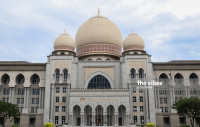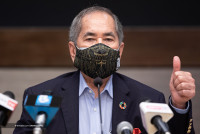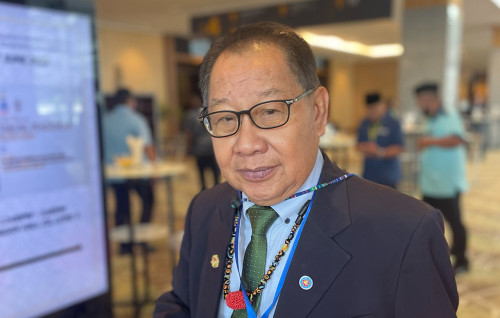THE attorney-general (AG) is wrong to have disregarded the confidence convention in saying a vote of confidence will undermine the Yang di-Pertuan Agong’s appointment of Datuk Seri Ismail Sabri Yaakob as prime minister.
A written constitution, no matter how detailed, is supplemented by constitutional conventions. The Malaysian federal constitution being modelled on the United Kingdom’s unwritten constitution is inlaid with constitutional conventions. The constitutional conventions are the unwritten rules that make the written rules work. The AG’s interpretation of the constitution without considering the constitutional conventions is erroneous.
The meaning of ‘responsible government’
The AG has failed to give effect to the concept of a “responsible government” in his statement. The term has a very precise constitutional meaning.
It means that a government – consisting of the prime minister and his cabinet – must at all times enjoy the confidence of the majority of the MPs. This rule is the foundation of the parliamentary democratic system. The name given to this rule is the “confidence convention”.
Under this rule, the government is responsible to Parliament for the exercise of the powers of government and governs only as long as it has the confidence of the majority-elected MPs – hence the term “responsible government.”
Articles 43(2), (3) and (4) operate on the basis of the confidence convention:
- Article 43(2)(a) provides that the Agong is to appoint a prime minister who in his judgment is likely to command the confidence of the majority MPs.
- Article 43(3) provides that the cabinet is collectively responsible to Parliament.
- Article 43(4) provides that if the prime minister ceases to command the confidence of the majority unless the Agong at the prime minister’s request dissolves Parliament, he is required to resign.
The confidence convention
The confidence convention requires the prime minister and his cabinet to hold office only for as long as they possess the confidence of the majority. It rests on the simple logic that a government cannot continue in office without the support of the majority of the MPs. This is because the government cannot function without the budget or important bills being approved.
The origins of the confidence convention are said to have begun in the British Parliament of 1780-1784. The prime minister informed the king that he needs to resign upon ceasing to enjoy the confidence of the majority in the House of Commons.
The prime minister said that although the king appointed the executive, no executive can serve the king and the people with effect if the executive does not enjoy the confidence of the house. Without the confidence of the majority, the government will be politically inefficient and the stability of the state threatened. A delay in resigning will be highly prejudicial to the king and the state.
Ismail Sabri, as all prime ministers before him and all who are to come after him, is bound by the confidence convention. The AG’s statement is a disservice to Ismail Sabri in preventing him from securing the legitimacy he needs. It is also highly prejudicial to the Agong and the people by prolonging a politically unstable and inefficient government if Ismail Sabri has, since his appointment, ceased to command the confidence of the 114 MPs who supported him earlier.

The hindering role of a constitutional monarch
Furthermore, the AG’s statement hinders the Agong from carrying out his duties in protecting the constitution and parliamentary democracy.
Although the Agong is to act on the advice of the cabinet under Article 40(1), he also has the discretionary or reserve power to refuse a request for dissolution of Parliament under Article 40(2)(b).
Eugene Forsey, a Canadian constitutional law expert, said the crown’s reserve power to withhold consent for dissolution is to protect the constitution from the predations of wily politicians.
“If a prime minister tries to turn a parliamentary responsible government into unparliamentary irresponsible government, then only the crown can stop him; only the crown can keep the government responsible to Parliament and Parliament to the people, only the crown can prevent Parliament from degenerating into a rubber stamp for the prime minister, election into mere plebiscite – plebiscites whose verdict the prime minister accepts only if it suits him – only the crown can prevent the prime minister, the prime servant, from degenerating into a prime despot, the whole process into an elaborate farce, swindling the public at the public expense, with the public helpless to protect itself,” he said.
Forsey said the head of state can help the country dodge a prime minister who loses an election yet refuses to resign from office; a prime minister who loses a vote of confidence but refuses to get an election called immediately; a prime minister who refuses to face defeat and tries anything and everything to avoid it.
The AG’s statement, therefore, hampers the crown from discharging his duties. The effect of the statement is to prevent the system of responsible government and the confidence convention from operating.
It blocks the constitutional monarch from protecting the constitution and the people from a prime minister who lacks legitimacy.
This is the second time, after the debacle in failing to table the emergency proclamation before Parliament, that this AG is not complying with the Agong’s instructions.
The 9th prime minister ought for the sake of his administration’s legitimacy abide by the confidence convention and hold the vote of confidence. – The Vibes, September 5, 2021
William Leong Jee Keen is the MP for Selayang



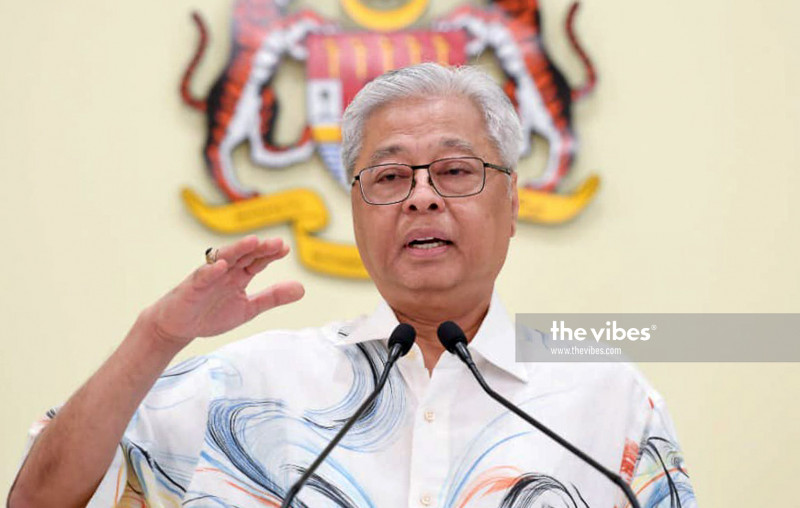
_-_AZIM_RAHMAN_2.jpg)


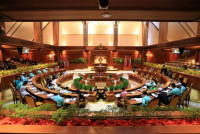

.png)

